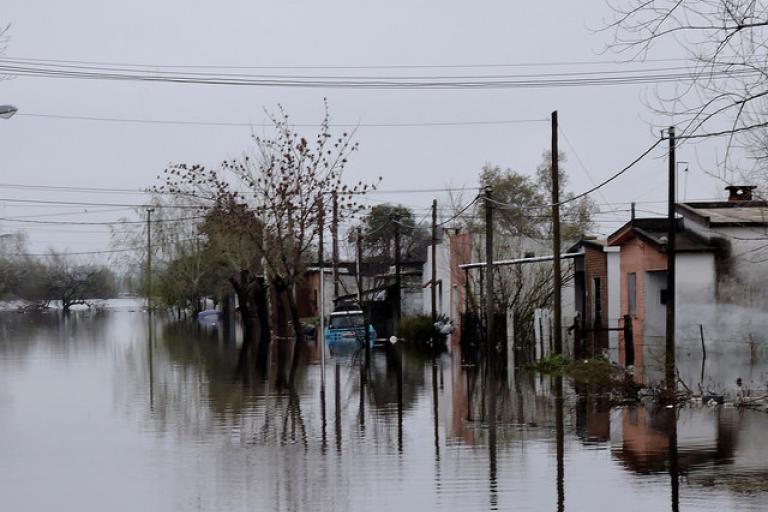The role of water in achieving climate neutrality
As a result of climate change, water availability is becoming less predictable, with floods and droughts exacerbating water challenges and impacting health and economies. It is estimated that a 2°C increase in average global temperature may result in 1 to 2 billion people lacking an adequate supply of water.

As a result of climate change, water availability is becoming less predictable, with floods and droughts exacerbating water challenges and impacting health and economies. It is estimated that a 2°C increase in average global temperature may result in 1 to 2 billion people lacking an adequate supply of water.
Much attention has focused on adaptation measures, but less attention has been paid to climate change mitigation opportunities related to water management and how to identify opportunities for emission reductions, carbon sequestration and the protection of Greenhouse Gas (GHG) sinks.
A side event at COP24 on the role of water discussed the role of water in achieving climate neutrality. It was co-sponsored by UN-Water and supported by WMO.
The water sector contributes up to 10 percent of carbon emissions locally from its energy consumption (i.e. pumping stations for water transport, irrigation, groundwater pumping), as well as contributing to greenhouse gas emissions from wastewater systems. In agriculture, water management is one of the most important practices affecting CH4, carbon dioxide (CO2), and N2O emissions. The demand for water for crop production is likely to increase due to climate change with higher temperatures and greater variability of precipitation.
However, examples exist of good water management contributing to carbon sequestration in agriculture and other sectors through; conservation agriculture practices, such as minimum tillage that reduces GHG emissions; sustainable soil management that increases soil organic carbon (SOC) content; and agroforestry and forest landscape restoration, including protection of wetlands, that lead to enhancement of both above and below ground carbon stocks.
Technical and financial support to promote sustainable, resilient and low-carbon water resources management is essential in achieving the global agendas including the SDGs and the Paris Agreement. It is thus urgently required to put more emphasis on the effects of water management on climate mitigation and carbon neutrality, the side event heard.

